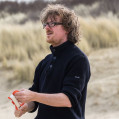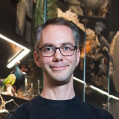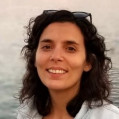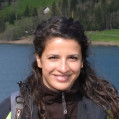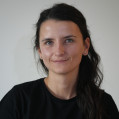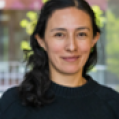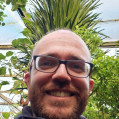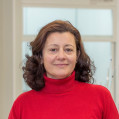Australia
Belgium
Bulgaria
Denmark
France
Germany
Italy
Portugal
Romania
South Africa

Meise Botanic Garden (MeiseBG) in Belgium has a biodiversity informatics team that focuses on managing and disseminating information about plant and fungal biodiversity. They collect and curate data from various sources, including scientific literature and field observations, and make it available through online databases and tools. They also develop software and applications that enable researchers and the public to access and analyse this information. The team collaborates with other institutions to advance the use of digital technologies for biodiversity research and conservation. In addition, they conduct their own research using the data they curate to understand patterns of plant and fungal diversity and evolution.

The Global Biodiversity Information Facility (GBIF) is an international network and data infrastructure funded by the world's governments and aimed at providing anyone, anywhere, open access to data about all types of life on Earth. Coordinated through its Secretariat in Copenhagen, the GBIF network of participating countries and organisations, working through the participant nodes, provides data-holding institutions around the world with common standards, best practices and open-source tools enabling them to share information about where and when species have been recorded. This knowledge derives from many different kinds of sources, including everything from museum specimens collected in the 18th and 19th centuries to DNA barcodes and smartphone photos recorded in recent days and weeks.
The Research Institute for Nature and Forest (INBO) is the Flemish research and knowledge centre for nature and its sustainable management and use. INBO conducts research and supplies knowledge to all those who prepare or make the policies or are interested in them as a stakeholder. Through its scientific research, INBO supports all agencies dealing with open space in the Flemish government, as well as in organisations involved in nature conservation, forestry, agriculture, hunting and fishery. INBO participates in B-Cubed through its Own Capital (EV INBO).

The origins of the University of Bologna (UNIBO) go way back, as it is considered to be the oldest University in the Western world. With its history intertwined with that of the great names of science and literature, it is a keystone and a point of reference for European culture. The University of Bologna is made up of 31 Departments and 5 Schools. There are also 7 Interdepartmental Research Centres and 12 Interdepartmental Research and/or training Facilities in many fields, ranging from veterinary to computer science, medicine, biology, geology, sociology and economics. 93,753 students have chosen the University of Bologna (2021/22 AY), including 7,630 international students with 252 Degree Programmes, of which 96 are international.

Established in 1607, the Justus-Liebig-University Giessen (JLU) is among the oldest universities in Germany. JLU ranks among the 25 largest universities in Germany and is the second-largest university in the federal state of Hesse. 12% of JLU’s BA-/MA students and almost 40% of its graduate students come from abroad. The university covers the areas of arts/humanities, business, dentistry, economics, law, medicine, life science, social sciences, and veterinary medicine. It is named after its most famous faculty member, Justus von Liebig, the founder of modern agricultural chemistry and inventor of artificial fertiliser, who taught at the university from 1824 to 1852.

Ovidius University of Constanța (UOC) is the largest university in the European Union at the Black Sea, hosting more than 18000 students and 1100 academic and administrative staff. Established in 1961 as a public higher education institution, it became a university in 1990 and took the name of Ovidius, the Roman poet of antiquity. The university currently offers undergraduate and graduate degrees in various fields, ranging from medical and life sciences to engineering, social sciences and arts. UOC is devoted to regional and international cooperation, is a member of various associations e.g. the European University Association (EUA), the European Association of Institutions in Higher Education (EURASHE), the Balkan Universities Association (BUA) and hosts the International Permanent Secretariat of the Black Sea Universities Network (BSUN).

The South African National Biodiversity Institute (SANBI) has a broad mandate that is derived from national legislation to undertake research and generate knowledge on South Africa’s rich biodiversity for the benefit and enjoyment of all South Africans. Its report on biological invasions is the only national assessment in the world that focuses specifically on biological invasions and is an important part of South Africa’s global leading position on the issue. The report is compiled in collaboration with the Centre for Invasion Biology (CIB) at Stellenbosch University.
Stellenbosch University (SU) is firmly committed to the pursuit of knowledge, research and innovation, in service of society. It provides a world-class centre for learning and development, which is globally relevant, yet rooted in the upliftment and transformation of local communities. Its actions are guided by key values and attributes, and enabled by outstanding staff and students, sound operating systems and a deep sense of purpose. SU is home to an academic community of more than 32 500 students, including more than 3 700 international students from 104 countries. SU has 4 658 permanent and fixed-term contract staff members, including 1 393 academics.

Over the past two decades, Pensoft Publishers has been at the forefront of planning, managing, and executing dissemination and communication activities for a range of global, EU and national research projects. Pensoft has built a strong track record in science communication in more than 60 initiatives funded under FP6, FP7, Horizon 2020, and Horizon Europe - as well as other EU and national funding institutions. Today, its Project department contributes to more than 35 Horizon Europe projects, taking the key role of dissemination, communication and exploitation work package leader. In addition to its strong expertise in science communication, Pensoft is an established open-access scientific publisher, renowned for its innovative journals and advanced publishing technologies that support the dissemination and semantic enrichment of research data and results.

The German Center for Integrative Biodiversity Research (iDiv) Halle-Jena-Leipzig provides a scientific foundation for the sustainable use of our planet’s biodiversity. iDiv-MLU focuses on three main areas: a) assessing biodiversity loss by integrating data at multiple spatio-temporal scales, b) studying how molecular-level processes affect the coexistence of species in ecosystems, and c) promoting collaboration to assess biodiversity trends, understanding the impact of biodiversity loss on society, and encourage sustainable biodiversity management practices. iDiv-MLU leads the EuropaBON Project, which aims to define the blueprints for a Europe-wide Biodiversity Observation Network. Additionally, in partnership with IIASA, iDiv-MLU co-leads the NaturaConnect project, which aims to redefine the Protected Areas System for the EU with a target of 30% by 2030, including 10% under strict protection. To support global mobilization and documentation of biodiversity data and metadata, iDiv-MLU hosts the Essential Biodiversity Variables Data Portal, a GEO BON initiative that utilizes data cubes to represent biodiversity's complex and multidimensional nature.

The French Institute for Research in Computer Science and Automation (INRIA) is France's national research institute for digital science and technology. World-class research, technological innovation and entrepreneurial risk are its DNA. In 220 project teams, most of which are shared with major research universities, more than 3,900 researchers and engineers explore new paths, often in an interdisciplinary manner and in collaboration with industrial partners to meet ambitious challenges. As a technological institute, INRIA supports the diversity of innovation pathways: from open source software publishing to the creation of technological startups (Deeptech).

The University of Aveiro (UAVR) is a public foundation under private law whose mission is to contribute to and develop graduate and postgraduate education and training, research and cooperation with society.

Established in 1952 and located in L'Aquila, administrative centre of the Abruzzo Region, the University of L'Aquila is a public teaching and research institution offering a full range of academic programmes including biotechnologies, sciences, economics, engineering, education, humanities, medicine, psychology, and sport sciences. With 7 departments, the University of L'Aquila offers its over 19,000 enrolled students 69 degree courses (divided between first and second level degrees), 9 research doctorate programmes, specialisation schools, specialising master courses and vocational courses. Many members of its distinguished faculty of about 600 professors and researchers have received international recognition and are considered leaders in their fields of research.











